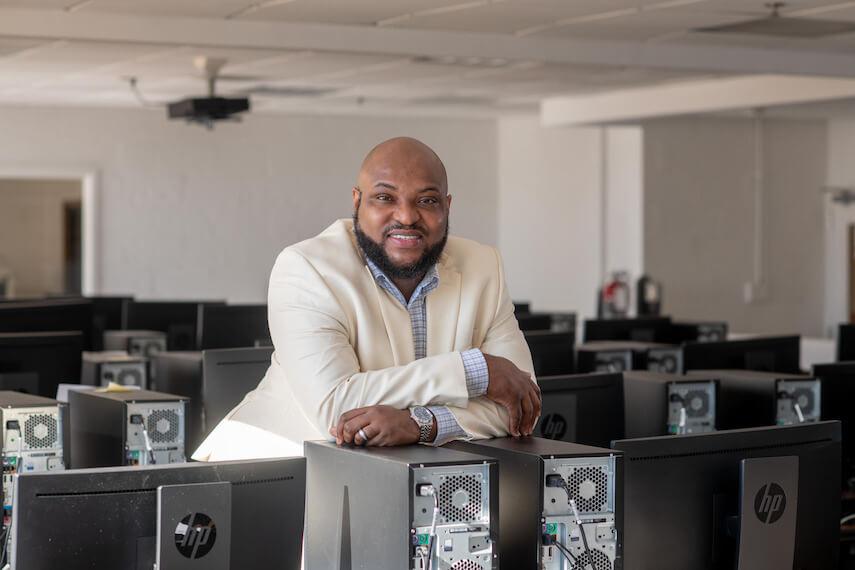On the precipice of the new millennium, when Curtis Cain, PhD, was still an inquisitive middle school student, his grandmother bought him what was then a top-of-the-line computer from a home shopping network. He promptly dissected it to figure out how it worked. “I was big on taking things apart, but sometimes the reassembly didn’t go as planned,” he says, chuckling.
Now as the first scholar in the Howard University School of Business to receive a five-year Faculty Early Career Development Award from the National Science Foundation – the most prestigious research honor for an untenured junior faculty member – the Atlanta native is examining the factors that influence Black men’s career trajectories in computing, informatics, and engineering (CIE). In the process, he’s shaping data and outcomes to improve their options in degree programs and the awaiting workplace. Cain’s research intentionally confronts a pervasive conundrum: The field says it wants diversity but remains rigid to change, expecting newcomers to assimilate instead of challenging itself to evolve and become more inclusive.
“It’s easy to point to the barriers – they’re right in front of us. It’s harder to propose tangible solutions and put the funding behind them to see them through,” explains Cain, who also taught software engineering to the initial cohort of students at Howard West, an academic partnership at Google’s Silicon Valley headquarters. “Companies pinpoint their lack of diversity as an issue with the ‘pipeline’ – meaning not enough Black people are interested in this work – when that couldn’t be further from the truth.”
Inspired by his father, a retired Air Force chief master sergeant who built computers from scratch, Cain joined the faculty in 2016 as an assistant professor to raise up an ample CIE community of Black people. He’s careful not to discount the challenges of Black women but has focused his research to bolster retention and encourage the talent of Black men in the field – particularly recent graduates – to contribute to a truly competitive CIE workforce. Programming is great, he says, but there are sales engineering and other areas for young Black minds to explore like he once did when he was disassembling his home PC.
“My preparation is not for them to get their first job. By virtue of being here at Howard, they’re probably going to get that. How are they going to get their second job? Because they’re not going to ask you what your GPA is or to see your transcript. They’re going to say, ‘Show us what you know,’” says Cain. “So, as we increase the number of folks going into those spaces, we need to increase the number of folks who are staying in those spaces. We don’t have a voice in the room if we’re not in the room.”
Article ID: 676




